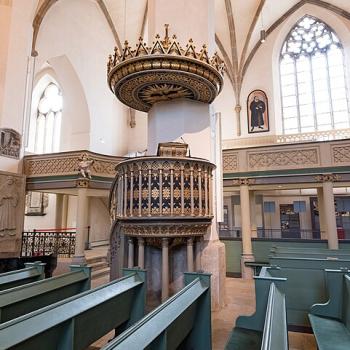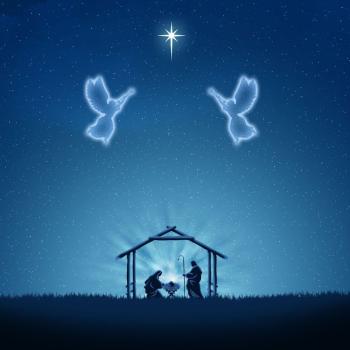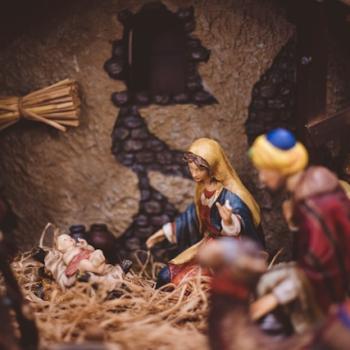In parenting classes, anguishing, we asked, "How could I have left my child? How can I answer her questions? How can I nourish him from here?" Sister Elaine, who created our Children's Center, believes a person can do something terrible, learn from it, and then change and make a difference in our kids' lives. A woman grieves for her children growing up without her. Then she watches a parenting video about teens' lives destroyed by drugs and cries out, "Oh my God, the drugs I sold could have done that to other children."
We start from our own loss, and our arms reach out to embrace those we have harmed. I learned that in holding on to our common humanity we can prevent ourselves from doing terrible things to one another.
Repair is part of the process. It is Children Appreciation Day. Older children sit next to their moms on tiny chairs with stretched-out lanky legs and blossoming bodies marking life's passing. As names are called out, each child and mom walk up to the homemade podium: "Alicia"—moving into the ninth grade; "Shatira"—a senior next year; "José"—made it through the storm; "Sha"—her brother Tojo is missing in action; and "Diane"—graduated from high school. With cheers and tears, everyone rises.
We tell our stories, mothers untangling our own tangled lives. Children visit their moms, hugged up between their legs; mothers braid and unbraid their hair into cornrows, pigtails, French twists, the braiding of love. My son, then fourteen, looks out at me from photos in my cell. I go beyond my child to the children affected by my crime, feeling my tie to families torn asunder, devastated, mothers without husbands, children without fathers. I cover my face with my hands in sorrow.
As a child I wanted to be a doctor to heal people, a life choice that made sense in light of my family values and circumstances. During the Civil Rights movement, I was passionate about equality, fervently wanting each person to develop their potential so that my own childhood opportunities could be for everyone. I lost my way. Twelve years underground. Isolation, different names, a lost self. I had arrived at a deeply wrong way of responding to social problems. Prison lies at the end of a road taken. Like many prisoners, I knew I had to start over and figure out what I thought, who I was, reach back into myself for the positive and build on it. Years pass. Now more than twenty years in prison, I share with other women daily issues of parenting, education, and health.
I have turned sixty. I think about how do we protect our planet. I look back on my crime and know that I would never again be involved in anything that risked human life in the name of social change. I have made a different way of life: serving others and building community.
There is a bridge between those like myself who committed a crime and those who suffered because of it. I want to know about that suffering, to face the anger, to say "I am sorry," because those words are the only ones we have to ask for forgiveness. Offenders are not supposed to contact the victims of their crimes. Sometimes the unexpected makes possible this human contact.
One of the victims of my crime and I met because we were both involved in the AIDS crisis. She told me her experience of that ghastly day: a gun stuck at her head, her eighty-year-old mother pushed out of her car, which had been commandeered. She testified against me and all who were arrested, a witness for the prosecution for three long years, and proud that she had helped to put everyone in prison. She asked me questions, and visited year after year. She allowed me to hear the consequences of my acts and to apologize. As I became a human being in her eyes, she forgave me. She helped me to experience my own humanity. There are many others whom I must face, others whose lives were devastated by irreparable loss and death.
Strangely enough, remorse also contains hope. In prison, we—probably more than most people—look over our shoulders at the past with regrets, questions, and sadness. But I must also have faith that I do not have to be frozen in my wrongdoing. The past and present are always circling into each other, yet always containing the possibility of moving forward. My sorrow has been an energy for transformation and contains within it the possibility of a different future.
I am not the woman who was arrested twenty-two years ago. I am a mother deeply connected to the world, whose child, now a young man, has led me over and over to understand the nature of loss and love. Remorse will always guide me. It is a very personal journey with stops along the way. It is a road with no end.
We prisoners are responsible for our process of repentance. It is a journey toward inner freedom. Yet, throughout life, human beings always look to others to support and encourage the best in ourselves, and as prisoners we look to society to acknowledge our change, to welcome us back, to complete the human circle, to make redemption possible as we join our families and community outside the prison gates in freedom.
Kathy Boudin was paroled in August 2003. This essay appeared originally as "Making a Different Way of Life" in Fellowship Magazine.
Comments are welcome at Erik Campano's blog, Stories Untold.




